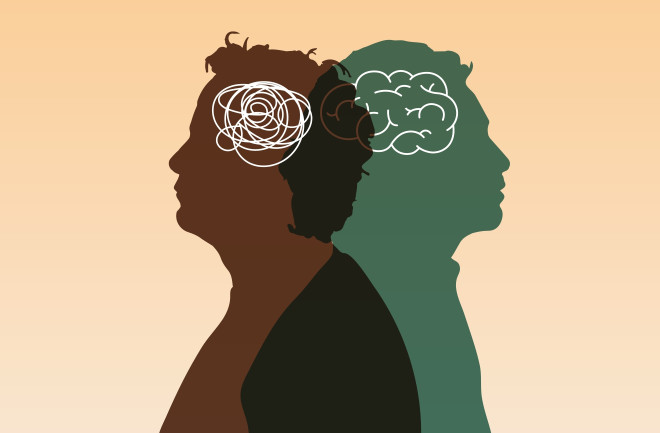In 1978, Kathy Kleiner was asleep in her bed at the Chi Omega sorority house at Florida State University when serial killer Ted Bundy entered through an unlocked door. After attacking two of her sorority sisters, Bundy found Kathy's door also unlocked.
Kathy survived the attack and is one of only a few Bundy survivors. When we began writing her memoir, A Light in the Dark: Surviving More Than Ted Bundy, she said she wanted to weave in as many stories about the other victims as possible.
For about two years, I researched the more than 30 women and girls Bundy killed. By the time I started compiling their biographies for an appendix, I often felt stressed, saddened and a bit on edge. There were certain victims who I thought about daily.
Later, I learned I had empathy overload, an experience that social scientists are finding can happen to people in both their professional and personal lives.
What is Empathy?
Empathy is typically considered how a person understands and relates to others. Some scientists have suggested empathy evolved as a neurobiological process so that a person would be compelled to create and keep social bonds. These social bonds would motivate the person to get along with other group members and strive for their children's survival.
A person can experience empathy overload, a type of compassion fatigue, which occurs when they are negatively impacted after providing emotional support to others.
Compassion fatigue is a relatively new concept in trauma studies. In the 1970s and 1980s, researchers began to more widely recognize that trauma impacted both the mind and the body. They realized that traumatic events could cause symptoms such as depression, fatigue or sadness.
In the 1990s, researchers began to consider secondary trauma and the idea that a person didn't need to witness or experience the trauma to be impacted. From there, scientists started to consider compassion fatigue and how people in helping professions were empathetic to the pain of others, and such constant concern could one day cause them distress.
Read More: How Reading Fiction Increases Empathy and Encourages Understanding
What is Compassion Fatigue?
Although researchers agree on the concept of compassion fatigue, there isn't one set definition. The Diagnostic and Statistical Manual of Mental Disorders (DSM-5) doesn't define compassion fatigue, so clinicians and researchers use different definitions as well as theories as to what causes it.
In general, compassion fatigue involves secondary trauma in which a person's empathy and concern for another causes them to have ongoing, negative emotional and physical symptoms. People in helping professions, such as counselors, nurses, paramedics, physicians, psychologists, social workers or teachers are more at risk for compassion fatigue. People who care full-time for a family member may also be at risk.
Researchers typically consider compassion fatigue as distinct from burnout. Burnout is the frustration, powerlessness and disillusionment a person might feel when they can't help others in a meaningful way. A nurse, for example, might feel burnout because their hospital is understaffed and they are too rushed to help patients the way they want. Similarly, a nurse might experience burnout because they care for patients who are part of a bigger problem they don't have the power to solve, such as the opioid epidemic.
Read More: How To Deal With Work Stress — And Actually Recover From Burnout
How Does Compassion Fatigue Develop?
One theory is that compassion fatigue results from countertransference, an unconscious process in which a person becomes connected to another's stresses or traumas. Some scientists have described empathy as "the vehicle whereby helpers make themselves open to absorption of traumatic information."
How the person responds to the transfer of trauma can vary, and some scientists think most people fall on a spectrum. On one end are avoidance behaviors such as empathic withdrawal or repression. On the other end are behaviors involving overidentification, enmeshment or excessive advocacy.
Researchers also see empathic disequilibrium as a possibility for some people. With empathic disequilibrium, the transfer of trauma shatters the person's worldview and they aren't sure how to proceed.
Read More: The Biology of Stress in Your Body
What is it Like to Have Compassion Fatigue?
Each person can have a different experience with compassion fatigue or display different symptoms. Some people might experience an emotional numbness. Others might have physical symptoms such as appetite changes, fatigue, headaches or a weakened immune system. Some people might feel irritable anxious and have trouble sleeping.
For me, I responded to the Bundy victim research with repressive behaviors. As a journalist, I didn't feel I was allowed to... well, feel. It was my job to report the story accurately and not involve how the story made me react.
In response, I looked for outlets where I could let my emotions flow. I cried, for example, at Hallmark Christmas movies — not because they were sappy, but because I thought there was a sadness to films like Finding Father Christmas. There was also a time when I insisted guests at family parties watch the Toyota Super Bowl Commercial about Paralympian Jessica Long and then agree that it was beautiful.
Read More: Feeling Exhausted? Maybe It's Empathy
How to Deal With Compassion Fatigue?
As a journalist, I was able to end my intensive research process and submit the book. My daily, constant inquiry into the Bundy victims concluded. But many people in helping professions aren't able to simply submit a project and end their exposure to secondary trauma.
Advocates recommend people in helping professions be mindful of their risk for compassion fatigue. For those who feel they have empathy overload, self-care practices and treating themselves with intentional kindness can help to reduce their symptoms.
Other people might benefit from talk therapy, and research finds it is the most effective approach to treating trauma.

